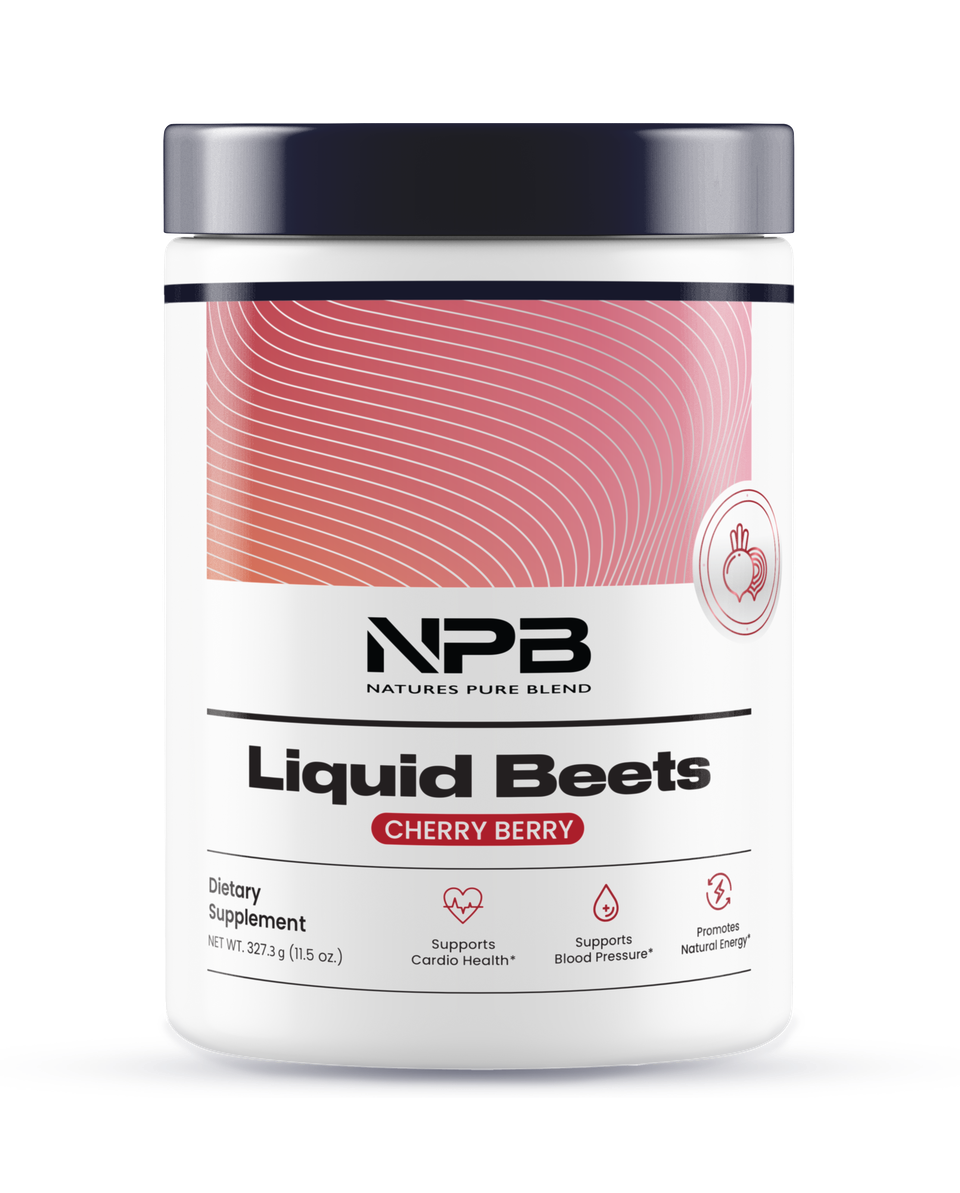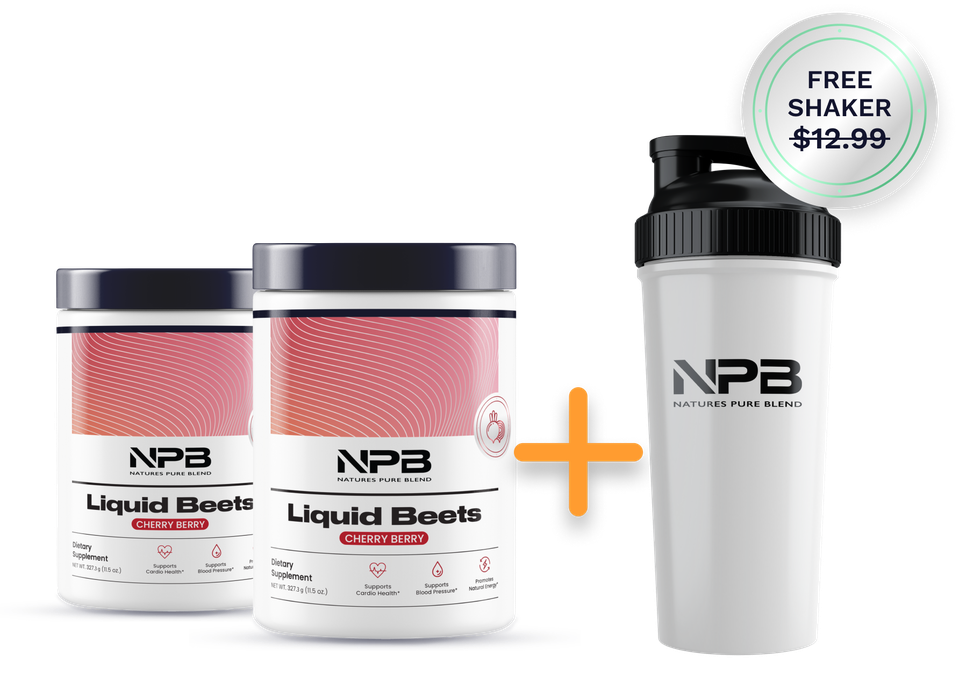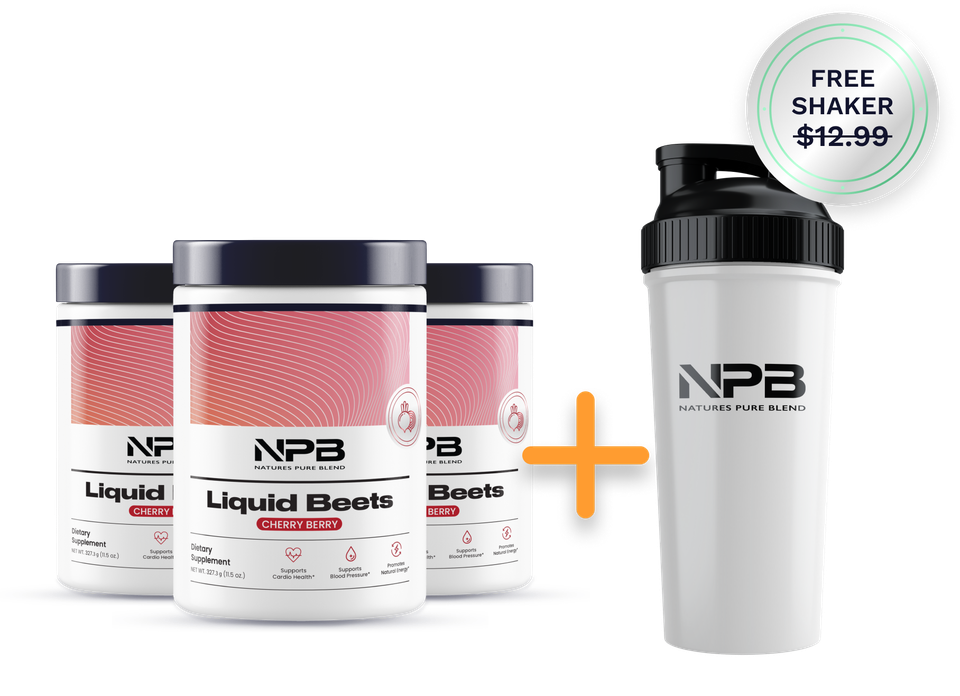Get Free Shipping On Orders $99+
5 Additives To Avoid For Healthy Blood Pressure
Maintaining healthy blood pressure levels is crucial for overall cardiovascular health and well-being. While factors like diet, exercise, and stress management play significant roles, paying attention to the additives in your food can also make a difference. Unfortunately, many processed foods contain additives that can negatively impact blood pressure. Here are five additives to watch out for and avoid to support healthy blood pressure:
1. Sodium (Salt):
One of the primary additives to avoid for healthy blood pressure is sodium, commonly known as salt. Excessive sodium intake can lead to water retention and increased blood volume, putting strain on the heart and raising blood pressure. Many processed and packaged foods, including canned soups, processed meats, snacks, and condiments, contain high levels of sodium. To maintain healthy blood pressure levels, it's essential to limit sodium intake and opt for fresh, whole foods whenever possible. 1
2. High-Fructose Corn Syrup (HFCS):
High-fructose corn syrup is a highly processed sweetener commonly found in sodas, sweetened beverages, packaged snacks, and other processed foods. Consuming high amounts of HFCS has been linked to insulin resistance, weight gain, and an increased risk of hypertension. HFCS can contribute to elevated blood pressure levels by promoting inflammation, insulin resistance, and oxidative stress in the body. To support healthy blood pressure, it's best to avoid foods and drinks containing high-fructose corn syrup and choose natural sweeteners or whole fruits instead. 2
3. Artificial Sweeteners:
While artificial sweeteners like aspartame, sucralose, and saccharin are marketed as low-calorie alternatives to sugar, research suggests they may have adverse effects on blood pressure and cardiovascular health. Some studies have linked artificial sweeteners to an increased risk of hypertension and metabolic syndrome. Consuming foods and beverages containing artificial sweeteners may also lead to cravings for sweet foods, potentially contributing to overeating and weight gain, both of which can negatively impact blood pressure. 3
4. Trans Fats:
Trans fats, also known as partially hydrogenated oils, are artificial fats commonly found in processed and fried foods, such as baked goods, margarine, and fast food. Consuming trans fats has been linked to inflammation, endothelial dysfunction, and an increased risk of cardiovascular disease, including hypertension. Trans fats can raise blood pressure levels by promoting inflammation and impairing blood vessel function. To support healthy blood pressure, it's essential to avoid foods made with trans fats and opt for healthier fats like olive oil, avocado, and nuts. 4, 5, 6
5. Monosodium Glutamate (MSG):
MSG is a flavor enhancer commonly used in processed foods, restaurant dishes, and packaged snacks. While the FDA considers MSG safe for most people when consumed in moderate amounts, some individuals may experience adverse reactions, including headaches, sweating, and increased blood pressure, after consuming foods containing MSG. MSG can raise blood pressure levels by stimulating the release of stress hormones like cortisol and promoting vasoconstriction. To maintain healthy blood pressure, it's best to read food labels carefully and choose products without added MSG whenever possible. 7
Conclusion
Being mindful of the additives in your food can play a significant role in supporting healthy blood pressure levels. By avoiding additives like sodium, high-fructose corn syrup, artificial sweeteners, trans fats, and MSG, you can make healthier choices that promote cardiovascular health and overall well-being. Prioritize whole, minimally processed foods and read food labels to make informed decisions about your diet. Your heart will thank you for it!
Boost Circulation, Reduce Inflammation & Support Blood Pressure!
Join Our Community Of Health Lovers & Get Special Deals
Receive study-backed health tips, exclusive email deals, and more.
†Disclaimer: These statements have not been evaluated by the Food and Drug Administration. These products are not intended to diagnose, treat, cure or prevent any disease. Product results may vary from person to person.




